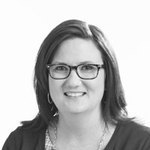Question
What do I need to know about children in my classroom and how can I get to know them and their families?
Answer
Getting to know the children and families in your classroom is really important. You need to figure out what information is kept in the children's files. Figure out those really important pieces that you need to know, like allergies, food restrictions, and custody arrangements. Find out if the children's files are kept in the main office or if you have copies of those within your classroom or in a file cabinet. Obviously, those are protected and very confidential. We have to maintain those in a very organized manner, but find out the information that you need to know about the children before they're in your classroom. Welcome the families. That is something that you can do by sending a get-to-know-you sheet or a newsletter to the families to introduce yourself. We have to make the families feel welcome because when they feel welcome they're more likely to talk with us and give us more information about their child and how their family functions. It's also great to introduce yourself to the families, whether it's a through a sheet that you send home or a display you make. You might have a website that would help families understand better who you are. You might have little cards. Not just a business card, but a card that tells a little bit about who you are, how to get in touch with you, and what your philosophy is for working with this age group. There are many ways to get to know the children and their families including calling the families or sending emails or inviting them to an open house to better understand what it is that you do within the classroom. You might invite families to meals or invite them for visits or to volunteer with a program or volunteer within the classroom. Those are great ways to get to know children and families. Those relationships are key and if you start off on a good note and you feel connected to the families and they feel connected to you, their children will be way more successful than if they don't have that connection. In our program, we use an "All About Me” sheet. It gives us a little bit of information about who lives at home with the child and includes the child’s nicknames, names and ages of siblings, and if there are pets. These are things that are sometimes repeated on our enrollment forms, but this is a good quick place for us to go to find out many things. For example, has the child been cared for outside the home? How did they do with that? What are the types of games they like to play? What foods don't they like? What are their favorite toys? What do the families do? What fears might this child have? I used to always tell families, let me know anything that would make life easier if I knew about your child, like if your child is terrified of thunderstorms. Thunder sounds very different in our building and I want to be prepared for this child who might have a little bit of stress because they're hearing thunder. Sometimes families don't think about telling us those little nuances about their children and those are the things that we really need to know to help make a successful experience for their children.
